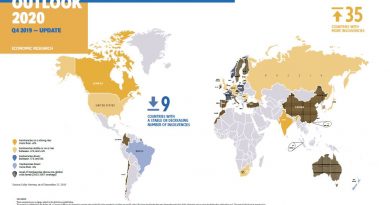The power of payment technology in bolstering SA’s rural and informal businesses
The size of a small, informal, or rural business shouldn’t be an obstacle to them attaining the same growth rate as larger, more formal enterprises. In fact, their smaller scale should be an advantage with fewer bureaucratic hurdles and greater flexibility. But in reality, rural businesses and informal traders are often limited by access to services, opportunities, and crucially, the right information, notes Andrew Springate, CEO of tech and financial gateway service provider PAYM8.
A World Bank survey shows the average informal enterprise in developing economies is only one quarter as productive as the average enterprise operating in the formal sector. Besides obvious challenges such as lack of capital, small businesses are often held back by struggles in their day-to-day operations too, including the complexities involved in payment processes and debit order collections.
“There is a misconception that competitive solutions don’t exist for the informal and rural business economies, but that’s simply not the case,” says Springate. “Many entrepreneurs in rural areas don’t realise they need payment products and solutions until they face a myriad of complications that become a distraction from their core operations.”
Of course, South Africa faces the challenge of having a significant percentage of consumers who remain unbanked and have limited financial literacy. In addition, in a constrained economic climate, consumers who are employed withdraw funds from their account on the day it is deposited, creating a challenge for SMEs who rely on efficient debit order collections for cash flow.
PAYM8 offers a host of specific solutions to help streamline the collections process such as VAS services as an incentive for the merchant’s client to pay, including airtime and data , authentication & account verification. With banks’ assistance, PAYM8 also processes debit orders in the early hours of the morning so that it is the first transaction to be processed against the account following the salary credit.
“Business owners need to understand who their target market is, what they need, and make it easy and convenient for them to pay,” says Springate. “This may mean adopting multiple payment options – even in the informal space, most vendors adopt two or three options. At a minimum, new businesses need a bank account and must ensure that they can accept cash and card payments. EFT payment and debit order functionality are the next steps.”
Fortunately, technology can help automate and simplify the collections process. Through PAYM8, the process is seamless via a single API integration from the merchant’s business systems. “This ensures transactions are simpler to capture while avoiding duplication and other errors through real-time reporting for all products and services. A single integration then gives merchants access to a whole bouquet of products and services. PAYM8’s aggregation strategy offers payment products across the spectrum in both the debit pull and credit push arenas making it a true one-stop shop with the highest level of data security and system protection via Level 1 PCIDSS accreditation,” says Springate.
“Ultimately, a sale is not a sale until the money is in the bank. PAYM8’s intelligent platform not only broadens the collections net but allows for automatic failover when required,” he adds.
Springate says that although adopting new technologies may be intimidating for informal businesses, the benefits are well worth it. “The right technology will not only speed up the growth of your business but give you other advantages. It’s important for business owners to remember that no matter their location, or where they are on their business journey, there are tools to make the process easier – make use of them.” PAYM8 will assist you every step of the way.




